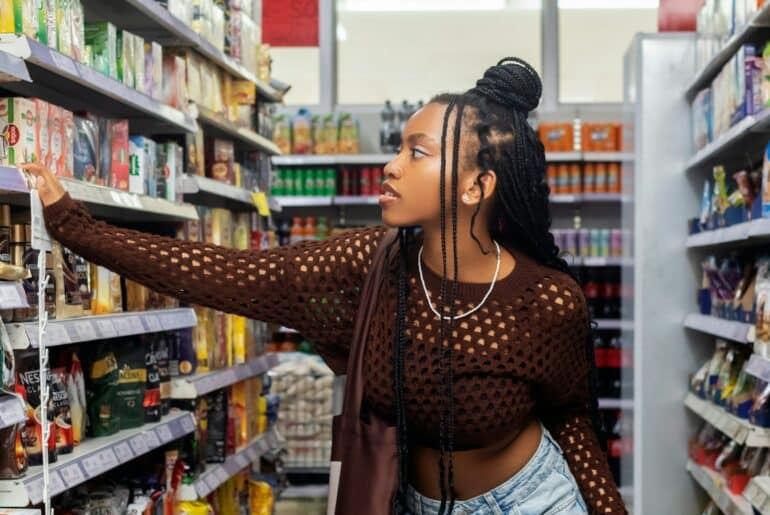For many wellness brands, especially in the Vitamin, Minerals and Supplements, and the Hydration Drinks category, the New Year is the make-or-break moment for sales velocity.
As we head towards the second half of the year, many marketing plans will launch early to increase awareness, drive new customer acquisition, and build remarketing pools.
The global Vitamins, Minerals, and Supplements market is anticipated to grow from $129 billion in 2021 to $196 billion by 2028. It is one of the few categories that saw significant positive movement during the pandemic, mostly due to consumers wanting to support immune health and boost overall well-being. And the Hydration Drink market is expanding as well, growing by an anticipated 7.8% by 2027.
Vesta recently conducted a wellness study of more than 5,567 consumers to understand what they will be looking for from brands in this category. Here is what we found…
How important are wellness brands to consumers?
Our study found considerable appeal for the category, with 60% of consumers saying they are particularly interested in Vitamins, Minerals, and Supplements brands, as well as one in three consumers interested in Hydration Drinks.
Even with increased interest in wellness, consumers struggle to meet their goals, with only one in ten saying they feel they get enough nutrients in their diet and only one in three saying they feel they stay hydrated well enough throughout the day. This presents a strong market opportunity for brands to fuel long-term relationships that service consumer needs.
What do consumers look for from wellness brands?
A big theme from the study was the new trend of personalized supplements. A substantial 58% are “very interested” in personalized supplements made just for them, with younger generations like Gen Z and Millennials being most interested (71%).
Furthermore, consumers are not seeking wellness brands for help with one or two concerns but for a multitude of areas of their health. Two-thirds (66%) of consumers say they seek help for seven or more health needs.
Younger generations like Gen Z seek help the most in Brain, Memory & Support (82%) and Hair, Skin & Nails (82%), while Millennials seek help with Everyday Health (72%) and Energy & Concentration (76%).
Gen X and Baby Boomers sought help the most in Bones, Muscles & Joints (84%), Heart Health (60%) and Eye Health (57%).
Regarding Hydration Drinks, 70%+ consumers are interested in Energy, Immune Support, and Vitamins.
Our study found men and women behave slightly differently in their consumption and purchase of Hydration Drinks. Women are more likely than men to drink Hydration Drinks to start their day (50% vs. 43%) or as a midday pick-me-up (61% vs. 53%), and men are more likely than women to drink Hydration Drinks after working out (70% vs. 62%).
Beyond personalization, younger consumers especially look for brands that prioritize transparency and sustainability. 54% of Gen Z want to know the science behind their Supplement, and 57% say sustainability, community, and giving back are important.
Millennials especially want Supplements with high-quality ingredients, including Supplements from real food sources (72%) and superfood ingredients (69%).
It’s clear that the brands that showcase personalization AND strong brand values will win out with consumers.
What influences purchase for wellness brands?
Our study found word-of-mouth advocacy played a big role with purchase decisions, with 86% saying recommendations from friends and family are important sources of information for Hydration Drink purchases. 90% of consumers turn to online reviews for Vitamin, Mineral, and Supplement purchases.
Close to 7 in 10 (68%) of consumers look to online communities of like-minded people as an important source of information for wellness brand purchases.
For these purchases, “influencers” are not influencing. Athlete endorsements and influencers/celebrities ranked last as important sources of information (32%, 25%).
What can you do now to prepare your brand for success?
Right now is the time to put in place strategic initiatives that address consumers’ specific needs of the moment. Here are three things you should do:
- Foster education and lifestyle conversation to create connection and accountability with like-minded people. Consumers are interested and excited about wellness brands. Maximize demand by boosting knowledge exchange and education.
- Build an online brand community rooted in elevated values that offers tailored experiences fueled by zero-party data. Consumers want wellness brands that have strong values AND create a personalized experience just for them.
- Cultivate brand advocates to build a pipeline of always-on reviews and user-generated content. Consumers will turn to their digital neighbors. Online reviews and social advocacy are key.
Questions about how to maximize sales in 2023?
The Vesta team are experts in the unique needs of wellness brands, from UGC and review generation to building brand equity and more. Reach out to us. We’re here to help.



